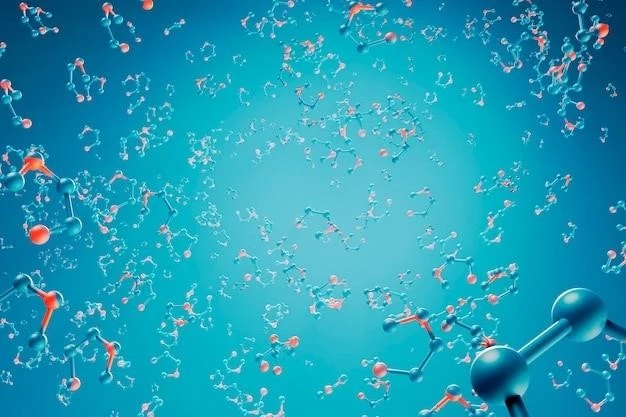Article Plan⁚ Disease, Mucoepithelial Dysplasia
Introduction to Mucoepithelial Dysplasia
Introduction to Mucoepithelial Dysplasia⁚
Hereditary Mucoepithelial Dysplasia (HMD) is a rare autosomal dominant disorder that affects the skin‚ hair‚ mucosa‚ and various other tissues in the body. This condition‚ characterized by disruptions in epithelial tissues‚ can have varying symptoms and severity among individuals. Understanding the background and clinical presentation of HMD is essential for proper diagnosis and management.
Hereditary Mucoepithelial Dysplasia⁚ Background
Hereditary Mucoepithelial Dysplasia (HMD) is a rare autosomal dominant disorder characterized by disrupted epithelial tissues affecting the skin‚ hair‚ and mucous membranes. First reported by Witkop et al. in 1978‚ this multisystem disorder involves various mucosal surfaces in the body; The condition is thought to be related to abnormalities in desmosomes and gap junctions‚ crucial structures for cell-to-cell adhesion and communication.
Clinical Presentation of Mucoepithelial Dysplasia
Patients with Mucoepithelial Dysplasia may present with a range of symptoms affecting the skin‚ hair‚ mucosa‚ eyes‚ and respiratory system. Common clinical manifestations include non-scarring alopecia‚ fiery red mucosa‚ keratosis pilaris‚ cataracts‚ and perineal psoriasiform lesions. The presentation can vary in severity and age of onset‚ making early diagnosis crucial for timely management and treatment of the condition.
Symptoms of Mucoepithelial Dysplasia
Patients with Mucoepithelial Dysplasia can exhibit a range of symptoms affecting various tissues in the body. Common symptoms include non-scarring alopecia (hair loss)‚ fiery red mucosa‚ keratosis pilaris‚ perineal psoriasiform lesions‚ cataracts‚ and respiratory issues. Early recognition of these symptoms is vital for initiating appropriate diagnostic evaluations and treatment strategies.
Diagnosis of Mucoepithelial Dysplasia
Diagnosing Mucoepithelial Dysplasia involves a thorough clinical examination‚ family history assessment‚ and potentially genetic testing. Skin biopsies‚ imaging studies‚ and specialized examinations of affected mucosal areas may be necessary to confirm the diagnosis. Considering the rarity of this condition‚ consulting with a dermatologist or a specialist in genetic disorders is recommended for an accurate diagnosis and appropriate management plan.
Genetic Factors in Mucoepithelial Dysplasia
Hereditary Mucoepithelial Dysplasia (HMD) is an autosomal dominant disorder caused by disruptions in desmosomes and gap junctions‚ affecting the structure and function of epithelial tissues. These genetic abnormalities lead to the characteristic mucosal lesions and multisystem manifestations seen in individuals with this condition. Understanding the genetic basis of HMD is crucial for diagnosis and management strategies.
Pathophysiology of Mucoepithelial Dysplasia
Hereditary Mucoepithelial Dysplasia (HMD) involves disruptions in desmosomes and gap junctions‚ which are vital for cell adhesion and communication. These structural abnormalities lead to the characteristic epithelial dyskeratosis seen in the skin‚ mucosa‚ hair‚ eyes‚ and lungs of individuals with HMD. Understanding the pathophysiology of this condition is essential for targeted treatment approaches and management strategies.
Treatment Options for Mucoepithelial Dysplasia

Hereditary Mucoepithelial Dysplasia (HMD) is a rare condition with no specific cure. Treatment aims to manage symptoms and improve quality of life. Approaches may include symptomatic relief measures like topical creams for skin issues‚ eye drops for ocular symptoms‚ and supportive care for respiratory concerns. Consulting with a team of specialists‚ including dermatologists‚ ophthalmologists‚ and genetic counselors‚ is crucial for individualized treatment plans and ongoing support.
Management of Mucoepithelial Dysplasia
Managing Hereditary Mucoepithelial Dysplasia (HMD) involves a multidisciplinary approach. Individuals affected by HMD require long-term care to address symptoms such as mucosal lesions‚ alopecia‚ skin issues‚ and eye problems. Regular monitoring by dermatologists‚ ophthalmologists‚ and other specialists is essential to tailor treatment plans and provide comprehensive support for patients and their families. Genetic counseling can also help in understanding the inheritance pattern and potential implications for future generations.
Complications Associated with Mucoepithelial Dysplasia

Complications associated with Hereditary Mucoepithelial Dysplasia (HMD) may include vision problems from cataracts‚ respiratory issues affecting lung function‚ and difficulties in mucosal healing‚ leading to chronic lesions. Patients may also experience psychosocial challenges due to the visible nature of symptoms like alopecia and mucosal redness. Regular monitoring and comprehensive care by a medical team familiar with HMD can help mitigate complications and improve quality of life.
Prognosis and Outlook for Patients with Mucoepithelial Dysplasia
Prognosis for patients with Hereditary Mucoepithelial Dysplasia (HMD) can vary depending on the severity of symptoms and individual response to treatment. While there is no definitive cure for HMD‚ management strategies aimed at symptom control and quality of life improvement can positively impact patient outcomes. Regular monitoring and comprehensive care by a specialized medical team are essential for optimizing prognosis and maintaining overall well-being.
Research and Advancements in the Field of Mucoepithelial Dysplasia
Research in the field of Hereditary Mucoepithelial Dysplasia (HMD) focuses on understanding the genetic basis of the disorder‚ including abnormalities in desmosomes and gap junctions. Ongoing studies aim to elucidate the underlying pathophysiology‚ improve diagnostic techniques‚ and explore potential targeted therapies. Advancements in genetic testing and molecular research offer promising avenues for enhancing the management and treatment of HMD in the future. Staying informed about the latest research developments can provide valuable insights for individuals and families affected by this rare condition.
Support and Resources for Individuals and Families Affected by Mucoepithelial Dysplasia
For individuals and families affected by Hereditary Mucoepithelial Dysplasia (HMD)‚ seeking support and resources is crucial. Connecting with patient advocacy groups‚ genetic counselors‚ and specialized healthcare providers can offer valuable assistance in navigating the challenges associated with HMD. Online forums and support networks can provide emotional support‚ information sharing‚ and a sense of community for those impacted by this rare condition. Additionally‚ collaborating with healthcare professionals for holistic care and personalized treatment plans can improve the overall quality of life for individuals with HMD and their families.
Conclusion⁚ Promoting Awareness and Understanding of Mucoepithelial Dysplasia
As we conclude our discussion on Hereditary Mucoepithelial Dysplasia (HMD)‚ it is imperative to promote awareness and enhance understanding of this rare condition. By increasing awareness among healthcare professionals‚ researchers‚ and communities‚ we can facilitate early identification‚ effective management‚ and support for individuals and families affected by HMD. Encouraging collaboration between medical experts‚ advocacy groups‚ and affected individuals can foster a supportive environment and drive research advancements in the field. Together‚ we can strive towards improved outcomes and quality of life for those living with Mucoepithelial Dysplasia.
